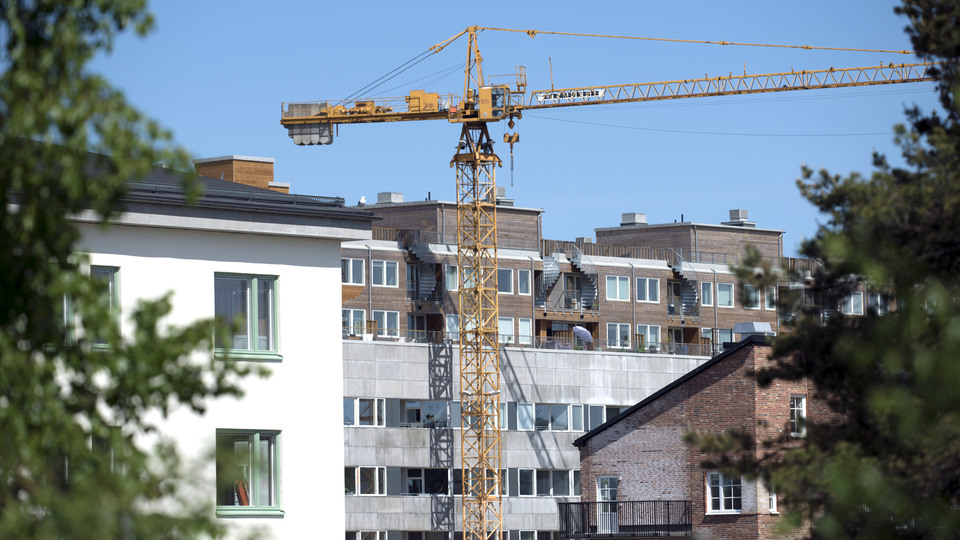
New digital working methods are required to increase recycling in the construction sector
Construction and demolition waste accounts for about a third of Sweden's waste volumes. Despite the fact that large quantities of this waste are of high quality, little is currently recycled. In a report for the National Board of Housing, Building and Planning, IVL has explored how digital technology can support increased recycling.
– An important key to creating sustainable housing construction is that there is access to reliable and traceable information about the environmental impact of building materials. This can be achieved with the support of digitalisation, but for digital technology to come into its own, changes in working methods are also required, for example in how we store information about our building materials, says Jeanette Green, project manager at IVL Swedish Environmental Research Institute.
Today, the broken chain of information through the construction process stands as an obstacle to increased recycling. The lack of digital support to ensure an uninterrupted flow has long been a matter for discussion between the actors in the construction process. In the project "Digital twin – a logbook for innovative and sustainable housing construction", IVL has therefore explored how new digital working methods can promote the development of an uninterrupted digital flow of environmental information linked to building materials.
– In our work with sustainability and buildings, we often encounter ambitions to build circularly, non-toxic and climate-neutral. But it is only when the building's sustainability can have traceability back to the building materials' declared environmental impact that we can have the climate-neutral and non-toxic material databases of the future for circular construction, says Jeanette Green.
Digital twins, ie digital copies of physical buildings, which include buildings' systems for heating and ventilation, have become more common in the construction sector, but there is still a lack of support to be able to work effectively with sustainability key figures that also include the material included in the building. The logbook that is created in external databases to track construction products provides more of a snapshot of an individual stage of the construction process.
– The working method in today's construction process, with many exchanges of materials along the way, makes it difficult to keep the information up to date. As a result, reliability is lacking, which in turn prevents recycling and circular material flows, says Eva Stattin at IVL.
Technical solutions such as digital twins and so-called blockchain technology can change this, but for these technologies to come into their own, they need to be present in standardized ways for digital identification and documentation of the building materials' environmental information, the project shows. Digital twins that also include information about building materials in a logbook would be of value, but it requires that the logbook contains accurate and up-to-date information.
– To get there, a pronounced and joint effort is needed for an uninterrupted flow of environmental information from all actors in the construction process. Current working methods need to be drastically changed in order for buildings to be able to develop into the "material banks" that they actually have the potential to be, says Eva Stattin.
Read more about the project's conclusions in the report: Logbook for an uninterrupted flow of environmental information - New working methods through digital ecosystems, blockchain and digital twins Pdf, 2.5 MB, opens in new window.
Pdf, 2.5 MB, opens in new window.
For more information, please contact:
Jeanette Green, jeanette.green@ivl.se, +46 (0)10-788 67 40
Eva Stattin, eva.stattin@ivl.se, +46 (0)10-788 67 10
